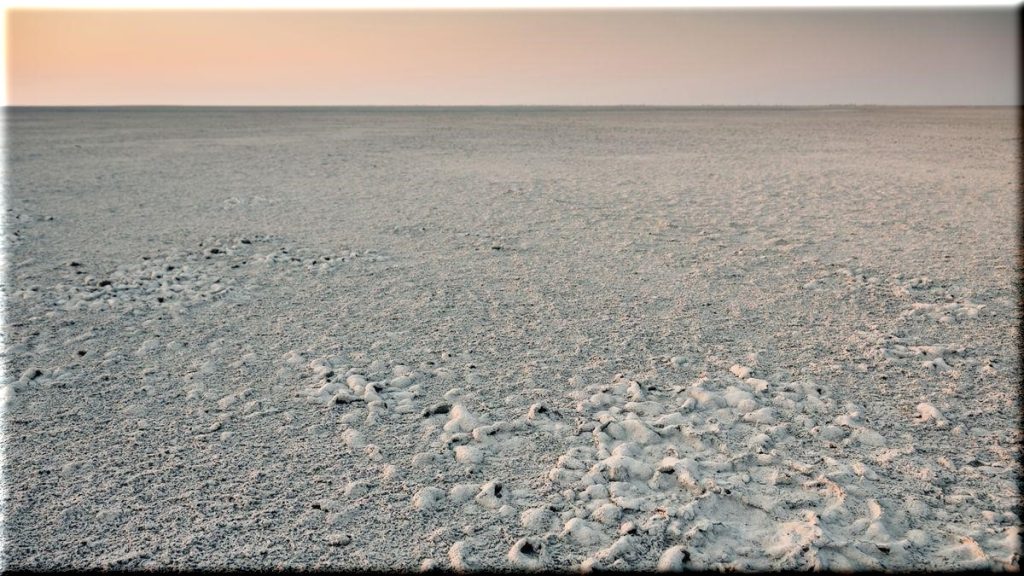Garden
Where is the Garden of Eden in Africa? The Scientific Discovery: Tracing Human Origins to Southern Africa
Have you ever wondered where humanity’s story began? Recent scientific discoveries have shed new light on the origins of modern humans, pointing to a region south of the Zambezi River in Botswana as a possible "Garden of Eden." This discovery, based on extensive DNA analysis, suggests that this area may have been the cradle of our species. Join us as we explore this fascinating finding and delve into the implications for our understanding of human history.
The Scientific Discovery: Tracing Human Origins to Southern Africa
A groundbreaking study, believed to be the first of its kind, has traced the maternal genetic lineage of modern humans (Homo sapiens sapiens) to a specific region in southern Africa. Researchers analyzed DNA from individuals across the globe, meticulously piecing together the puzzle of our ancestral past. The results were remarkable, indicating that the most common ancestral lineage, traced back through the maternal line, most closely resembles people living in a small area of southern Africa. This area, situated south of the Zambezi River in Botswana, has been dubbed the "Garden of Eden" for modern humans.
The implications of this discovery are profound. It suggests that, contrary to some previous theories, the cradle of humanity may not be in East Africa but rather in southern Africa. This finding challenges our understanding of human evolution and migration patterns, highlighting the importance of continued research and exploration in this field.
The "Garden of Eden" Metaphor and Its Significance
The use of the term "Garden of Eden" is significant because it evokes the concept of origins and beginnings. This metaphor, deeply ingrained in various cultures and religions, symbolizes a place of creation and purity. In this context, the "Garden of Eden" in Botswana represents the birthplace of our species, where modern humans first emerged. While the metaphor itself is symbolic, it serves as a powerful reminder of the extraordinary journey of humanity, tracing its roots back to a specific location on Earth.
Botswana: The Land of Our Ancestors
Botswana, a landlocked country in southern Africa, is known for its vast, arid plains and diverse wildlife. Its geological history, characterized by ancient rock formations and rich mineral deposits, provides a glimpse into the deep past. The region’s archaeological sites have already yielded significant discoveries that illuminate the early stages of human evolution, particularly the development of stone tool technology. The recent discovery of the "Garden of Eden" further emphasizes the importance of Botswana in the narrative of human origins.
Exploring the Zambezi River: A Lifeline Through Time
The Zambezi River, flowing through Botswana and several other southern African nations, is a vital lifeline to the region’s ecosystem. Its meandering course has played a crucial role in the development of settlements and the spread of human populations throughout the ages. The river’s fertile banks have provided a source of sustenance and facilitated trade and communication among early humans. Further research along the Zambezi River, particularly in the region south of Botswana, could potentially uncover more evidence of human origins and early human behavior.
The Future of Research: Unveiling the Secrets of Human Origins
This latest discovery is just the beginning of the story. The "Garden of Eden" in Botswana provides a tantalizing glimpse into our ancestral past, but much remains to be uncovered. Ongoing and future research in the region, utilizing advanced DNA analysis, archaeological excavation, and other scientific techniques, promises to shed further light on the mysteries of human origins. As we continue to explore the depths of our shared history, we can expect to uncover even more remarkable insights into the journey of humanity from its earliest beginnings to the present day.
The "Garden of Eden" in Myth and Literature
Beyond the scientific realm, the "Garden of Eden" holds a powerful place in myth and literature. The biblical account of the Garden of Eden, as found in the Book of Genesis, describes a paradise where Adam and Eve lived in perfect harmony with nature. This narrative, imbued with symbolism and profound meaning, has inspired countless works of art, literature, and music throughout history.
From the Garden of Eden depicted in Michelangelo’s fresco on the Sistine Chapel ceiling to the allegorical gardens in Shakespeare’s plays, the concept of the Garden of Eden has resonated across cultures and time periods. The enduring appeal of this myth speaks to the human desire to understand our origins and to yearn for a lost paradise.
The Controversy: Debating the "Garden of Eden" Location
While the Botswana study has provided compelling evidence for the region’s role in human origins, it is important to acknowledge that scientific understanding is constantly evolving. There are other theories about human origins, some of which propose different locations as the cradle of humanity. These alternative theories, though challenged by the recent Botswana study, offer valuable perspectives and underscore the ongoing debate within the scientific community.
The scientific process thrives on open dialogue and debate. As new evidence emerges and technologies advance, our understanding of human origins will undoubtedly continue to shift and evolve. The "Garden of Eden" in Botswana may not be the final word, but it certainly offers a significant starting point for further exploration.
FAQs
Is the Garden of Eden a literal place, or a symbolic concept?
While the "Garden of Eden" in Botswana is a scientific discovery, the term itself is a metaphor, drawing upon the biblical and cultural symbolism of a paradise. The scientific community focuses on the concrete location and evidence, while the metaphorical interpretation allows for a broader understanding of origins and beginnings.
What evidence supports the claim that modern humans originated in Botswana?
The primary evidence is based on DNA analysis that traces maternal lineages back to a specific region in Botswana. This analysis suggests that the genetic markers most closely resembling the earliest human ancestors are found among individuals living in that area.
Are there any other potential "Gardens of Eden" locations around the world?
Yes, there are alternative theories about human origins, proposing different locations as the cradle of humanity. These theories, though challenged by the Botswana study, offer valuable perspectives and underscore the ongoing debate within the scientific community.
How does this discovery impact our understanding of human history?
The discovery of the "Garden of Eden" in Botswana shifts our understanding of human origins from East Africa to southern Africa. It also suggests that human migration patterns may have been more complex than previously thought, highlighting the importance of further exploration and research.
Where can I learn more about the research on human origins?
You can find more information about research on human origins by consulting scientific journals, visiting reputable websites, and attending lectures and conferences.
Goodxtop
We encourage you to continue your journey of exploration by delving deeper into the fascinating world of human origins. Share your thoughts and comments below, and explore our other articles for more insights into the remarkable story of humankind.


